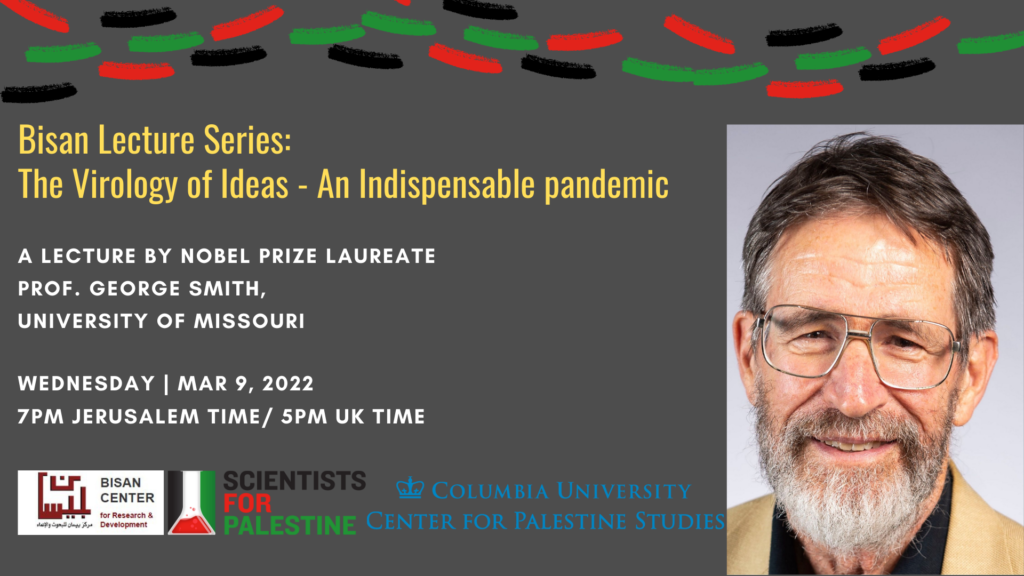
Title: The Virology of Ideas—An Indispensable Pandemic
Speaker: Prof. George Smith (University of Missouri, Nobel laureate in chemistry in 2018)
Abstract: “Ideas” (cultural innovations) are likened to viruses that proliferate through community infection, being subject to massive random variation and ruthless natural selection as they spread. “Variants of interest”—extremely rare cultural Omicrons—emerge unpredictably from global communities; they’re not the intellectual property of individual brains. Individual brains’ contributions depend on their residence in a global “ideosphere”—the cultural analog of an ecological biosphere. Injury to any part of the global cultural community, such as Israel has inflicted in Palestine, is an injury to the entire global community. Liberation from such injuries is a cultural as much as a political and moral imperative.
A short biography of George Smith
George Smith is a biologist committed to the free dissemination of scientific ideas and resources. At his Nobel Prize in Chemistry award ceremony in 2018, he explained that he was sharing the prize for an innovation that emerged from the combined work of the overlapping global scientific communities he belonged to, not specifically from him personally or from his research group.
George graduated from Haverford College and, after a year working in a cancer research center in Philadelphia, took a PhD at the Harvard Medical School. Already as a graduate student he was politically active. This was the era of the U.S. war in Vietnam. Despite being beyond draft age, he turned in his draft card and was consequently immediately drafted. He risked imprisonment by refusing induction, but in the event was not prosecuted.
A common thread of George’s research has been the study of genetic diversity, in antibodies, repetitive DNA sequences, and finally in combinatorial chemistry. He began to investigate the assembly of filamentous phages (long, thin viruses that infect bacteria), with a specific interest in designing DNA cloning vectors to evolve new proteins. That is the work that eventually evolved into the elegant innovation that he introduced in 1985, and that set in train the development of “phage display” technology by numerous scientists around the world. In this technology, enormous peptide “libraries” are generated on the surfaces of bacteriophages, allowing extremely rare peptides that bind a target biomolecule, a receptor, to be selected using simple microbiological techniques.
This method has led to new pharmaceuticals, and to development of a range of antibody drugs used as anti-cancer or anti-inflammatory therapeutics. George received the Nobel Prize in Chemistry in 2018 for this work, sharing the award with Greg Winter and Frances Arnold.
George never patented phage display, and he and his colleagues were enthusiastic disseminators of the technology to laboratories throughout the world, freely providing seed stocks, detailed protocols, and advice.
George is a strong advocate for Palestinian liberation, and a co-founder of Mid-Missourians for Justice in Palestine. This organization has an active agenda, and in 2020 fought against passage of discriminatory Missouri legislation preventing the state government from contracting with companies that boycott Israel.
Sponsored by



